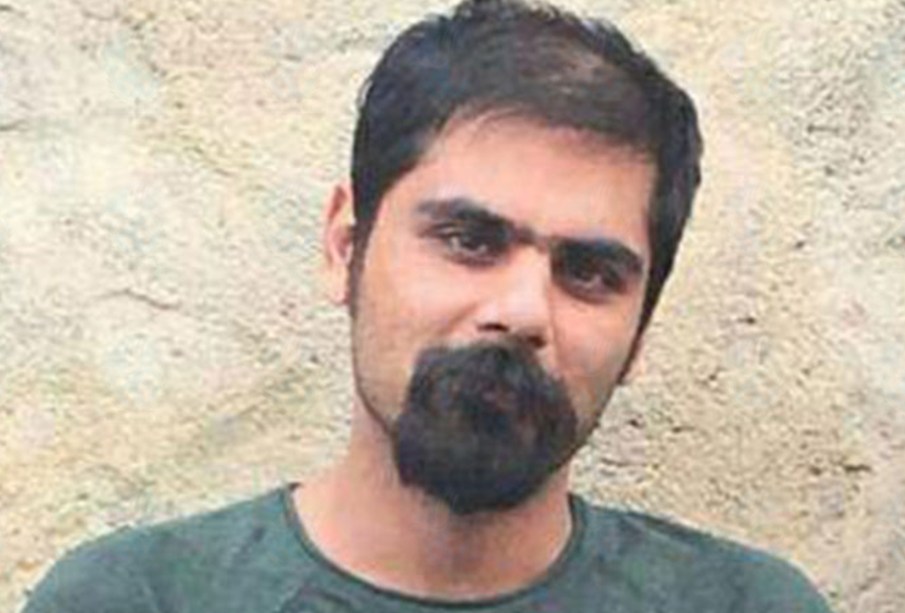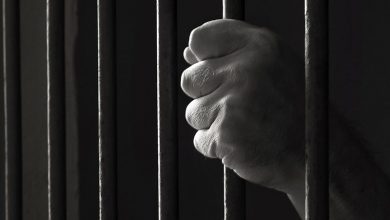
Abbas Dehghan, One of the Gonabadi Dervishes, Detained for 795 Days and Uncertainty Without Sentencing
Human Rights in Iran – Friday, April 24, 2020, Abbas Dehghan, a Gonabadi dervish arrested in the Golestan 7th incident, has been detained for more than two years in a state of uncertainty in the 2nd brigade of prison ward 1, Great Tehran Prison. After being arrested in the Golestan 7th incident, this Gonabadi dervish was transferred to the detention center of ward 1A of Sarallah IRGC Camp located in Afsaria, Tehran, and was interrogated and charged, and then transferred to the Great Tehran Prison.
According to Human Rights in Iran, today, Friday, April 24, 2020, Abbas Dehghan, a Gonabadi dervish imprisoned in the 2nd brigade of prison ward 1 of Great Tehran Prison, while more than 2 years have passed since the Golestan 7th incident and the accusations of gathering and colluding to disrupt national security, Rejection of the order of the officers while performing their duties and acting against the internal security, he is left in an uncertain situation in the Great Tehran Prison.
In an interview with Human Rights Reporter in Iran, an informed source said: “After two years of the Golestan 7th incident and unfulfilled promises by the officials of the Security Prosecutor’s Office of the “Moghaddas Prosecution Office” in Tehran to investigate the undecided situation of Abbas Dehghan, so far no action has been taken by judicial officials to release Abbas Dehghan from this uncertainty.
The informed source added: “Mohammad Moghiseh, a judge of Branch 28 of the Revolutionary Court of Tehran, who has been appointed as the judge in the case of Abbas Dehghan, has kept this Gonabadi dervish in temporary and undecided detention for 795 days. This uncertainty has not yet been determined by the date of the hearing in the case of Abbas Dehghan, and Mohammad Moghiseh has not agreed to change Abbas Dehghan’s warrant from arrest to bail for the temporary release of this Gonabadi dervishes.” This is while according to article 242 of Criminal Procedure Code: “If the detention of the accused continues, the provisions of this article shall apply, as the case may be, every two months or every month. However, the period of detention of the accused shall not exceed the minimum sentence of imprisonment prescribed by law for that crime, and in any case, shall not exceed the term of life imprisonment for two years and in other crimes of one year.”
The informed source also said: “Abbas Dehghan was detained Shapour Criminal Investigation Department for 1 month after his arrest in the Golestan 7th incident. This Gonabadi dervish was then transferred to the 4th Brigade of Great Tehran Prison. One month after being transferred, Abbas Dehghan was transferred to Detention Center 1A of Sarallah IRGC Camp and was subjected to a series investigation for 30 days along with torture. This Gonabadi dervish was transferred to the 4th Brigade of Great Tehran Prison after completing the interrogation process.”
In August 2018, while other dervishes arrested in the Golestan 7th incident were waiting for the verdicts to be issued by Branches 15 and 26 of the Revolutionary Court of Tehran, Abbas Dehghan was again transferred to the Shapour Criminal Investigation Department in Tehran and after 6 months was transferred the 2nd Brigade of Great Tehran Prison.
It should be noted that since February 3, 2018, midnight the presence of a large number of security forces and police around Dr. NoorAli Tabandeh’s house was met with a negative reaction from other dervishes. Dervishes protested around their leader’s home and police and anti-riot troops along with intelligent Service agents collapsed with them which ended in violence and hundreds of dervishes were killed or arrested. This happened as a consequence of dervishes gathered in the same place on January 24th, 2018 at night to express their worries about their leader.
The pressure on the dervishes in the Islamic Republic began mainly in the city of Qom. Qom is the most religious city in Iran and due to the historical conflict between Sufism and Sharia, pressure on dervishes in this city has a long history and dates back to pre-revolutionary years, but in the first years of the 1380s (fist decade in 2000) with the publication of many anti-Sufi books in Qom and accusing the dervishes of being anti-Shiite, a heavier atmosphere gradually developed. Tensions between the government and Nematullahi dervishes entered a new era that led to a physical clash and bloodshed in Tehran a decade later, with the destruction of some of their religious sites and the government’s opposition to their gathering.
In recent years, there have been numerous reports of summonses, threats, arrests, and eventually the trial and severe sentencing for them – especially the Gonabadi Dervishes – has been issued.
Amnesty International issued a statement on May 25, 2018, expressed concerns over the situation of women dervishes and calling on the Islamic Republic of Iran to release them with no binding.
The suppression of the Gonabadi dervishes in Iran violates flagrantly international human rights instruments, including article 2 of the UDHR, as well as articles 18 and 19 of it, and also article 18 of the ICCPR. Emphasis is placed on the right of individuals to perform religious rites, as well as to promote and teach religious teachings to individuals, both collectively and privately.
Prisoners of conscience in the Islamic Republic Prisons are struggling with a wide range of violations of human rights. On the one hand, their deprivation of the right to a fair trial, emphasized in article 10 UDHR, and on the other hand, various diseases and physical injuries and their lack of civil rights in the treatment of physical illnesses and injuries. People have been suffering from these diseases since they were imprisoned, but judicial and security officials in Islamic Republic Prisons use this as a lever to understand the views or accusations against individuals, which violates article 5. It is the Universal Declaration of Human Rights.






I believe what you wrote was actually very
logical. However, what about this? suppose you added a little information?
I am not saying your information isn’t good, but suppose you added a headline to
possibly grab people’s attention? I mean Abbas Dehghan, One of the Gonabadi
Dervishes, Detained for 795 Days and Uncertainty Without Sentencing
– صدای پای آزادی is kinda vanilla.
You should glance at Yahoo’s front page and note how
they write news headlines to get people to open the links.
You might add a video or a pic or two to get people excited about everything’ve got to say.
In my opinion, it might bring your posts a little bit more interesting.
My relatives all the time say that I am wasting my time here at
web, but I know I am getting familiarity every day by reading thes
nice posts.
Your way of telling еverything inn tһіs
paragraph is in fact fastidious, every one can without difficulty be aware
oof it, Tһanks ɑ l᧐t.
My blog :: Harland Nary
I am not sure where you’re getting your info, but great
topic. I needs tto spend some time learning much
more or understanding more. Thanks for excellent information I was looking for this info for my mission.